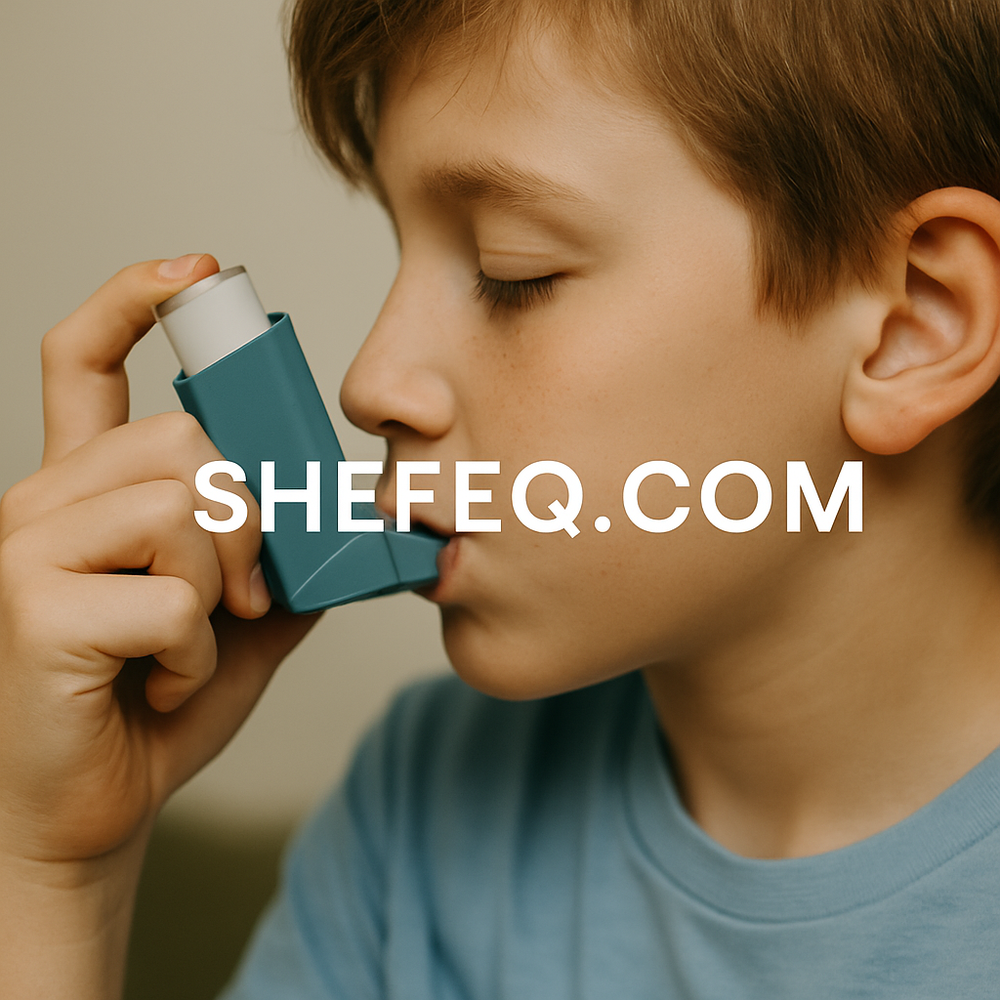INTRODUCTION: LEARNING TO APPRECIATE BREATHING AT A YOUNG AGE
Sometimes people only realize how precious healthy breathing is once they lose it. But there are those who have never experienced breathing as something “normal.” For them, breathing is not an unconscious reflex—it is a daily achievement. These people are children growing up with asthma.
Asthma is not just a respiratory condition. It is a silent companion that reshapes the rhythm of childhood, adolescence, and sometimes youth itself. This article explores not only the physical effects of asthma, but also its psychological, social, and lifestyle impacts—blending scientific facts with personal stories and emotional insight.
1. WHAT IS ASTHMA? – DEFINITION AND MEDICAL PERSPECTIVE
Asthma is a chronic inflammatory disease of the bronchial tubes. It is characterized by narrowing of the airways, mucus buildup, and spasms.
Main symptoms include:
-
Shortness of breath
-
Wheezing
-
Chest tightness
-
Coughing (especially at night or early morning)
1.1 Asthma in Children
Children experience more frequent attacks than adults. Their airways are narrower, and their immune systems are still developing. Asthma is often accompanied by allergies—dust, animal dander, pollen, humidity, or infections can trigger attacks.
2. LIVING WITH ASTHMA IN CHILDHOOD – THE FIGHT FOR BREATH
2.1 Being Different at School
A child with asthma often cannot fully participate in physical education, gets tired easily, or starts coughing during class. Questions like “Why can’t you breathe?” can leave emotional scars.
2.2 Toys and Playgrounds
Dusty environments, homes with pets, or soft toys may be dangerous for asthmatic children. These limitations can narrow their social circle.
2.3 Family Reactions
Parents of asthmatic children are often in a state of constant worry. Every smell, every change in weather could signal a new attack. This leads to “overprotectiveness,” which can affect the child’s self-confidence.
3. THE EMOTIONAL BURDEN OF ASTHMA
3.1 “Why Me?”
The child begins to feel different from others. Each struggle to breathe sparks a fear: “What if I can’t breathe again?”
3.2 Fear and Panic
Asthma attacks leave not just physical but also psychological traces. The fear of suffocation during an attack may lead to anxiety or panic disorders later in life.
4. FIGHTING ASTHMA – EDUCATION, TREATMENT, AND POSITIVE CHANGE
4.1 Advances in Medicine
Modern medical approaches have made asthma a manageable condition. Inhalers, allergen control, and behavioral therapy help asthmatic children lead healthier lives.
4.2 The Role of Parents and Teachers
Teacher awareness, allergen-free environments at home, and emotional support are essential for helping the child grow up with confidence and safety.
5. FAMOUS PEOPLE WHO GREW UP WITH ASTHMA
Few people know that some world-renowned individuals once struggled with asthma:
-
Teddy Roosevelt – Former U.S. President
-
David Beckham – Football legend
-
Diane Keaton – Actress
-
Bill Clinton – 42nd President of the United States
These names show that asthma is not the end—it can be the beginning of something great.
6. SOCIAL IMPACT – SOCIETY'S PERCEPTION OF ASTHMA
Children with asthma are sometimes labeled “weak,” “fearful,” or “too sensitive.” But in truth, they are silent fighters battling daily for something others take for granted—breath. Society should offer them more compassion and support.
7. RESEARCH AND STATISTICS
-
According to the World Health Organization, more than 300 million people worldwide suffer from asthma.
-
Among children, asthma is the most common chronic respiratory disease.
-
Studies show that with proper treatment, children with asthma can live completely normal lives, and the number of attacks often decreases with age.
CONCLUSION: ASTHMA ISN’T A WEAKNESS, IT’S A DIFFERENT FORM OF STRENGTH
Growing up with asthma means understanding the true value of each breath at a young age. Every breath, every step is a victory. This condition doesn’t make a person weak—it makes them sensitive, thoughtful, and in tune with their body.
By the end of this article, not only children with asthma but everyone should remember:
To breathe is to live.
DEAR READER,
If you or a child you know is growing up with asthma, this article is for you.
There are nights you wake up coughing. Days when you can’t run or play freely. Moments when you whisper to yourself: “Why me?”
But hear this: these struggles do not make you weak. They make you brave. They make you resilient. They make you a friend to your own body.
Asthma has come not to stop you, but to teach you—teach you to notice life’s subtleties. Every breath you take is a small triumph. You are not alone. Millions around the world breathe just like you—with awareness, strength, and courage.
You are strong. You are writing a life story through your breath.
With understanding,
Shefeq.com

